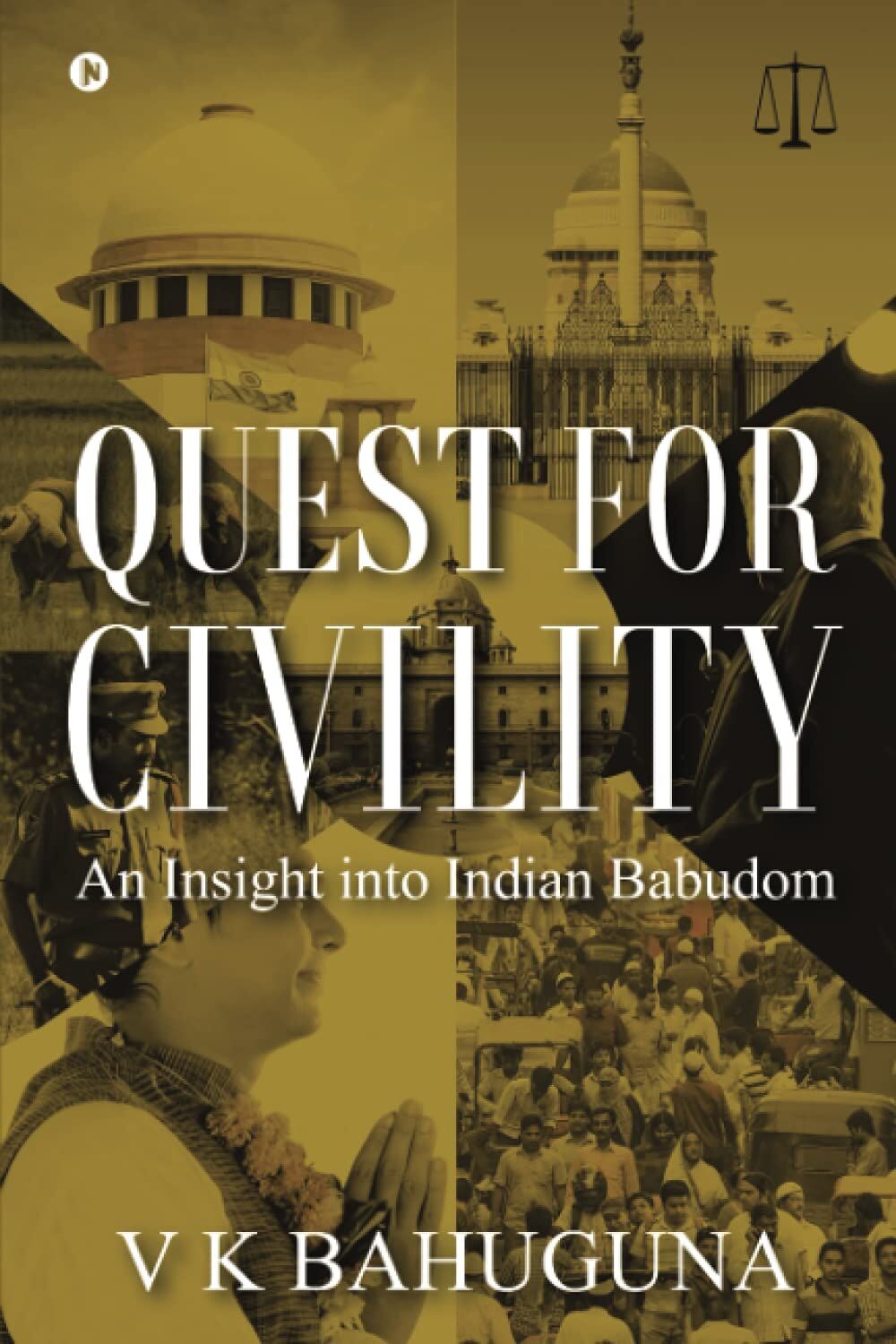An insightful commentary
Having served in the IFS for nearly four decades, VK Bahuguna in his book, Quest for Civility, provides an insider’s view into the ins and outs of ‘babudom’ and recommends transformative changes for effective functioning of the three wings of the government

Being the eyes and the ears of the political class, Civil Services are an essential component of the executive wing in a democratic set-up, and are vital to running a transparent and honest administration. The rule of the political class depends heavily on civil servants for implementation of public policies and programmes. This book titled "Quest for Civility-An insight into Indian Babudom" is an excellent refreshing commentary on the positives as well as negative aspects of Indian bureaucracy. The author, VK Bahuguna, has served in senior positions both at the Government of India and the state level for more than 37 years in the Indian Forest Service (IFS), with diverse experience within and outside his own cadre. He provides a very vivid, frank, bold and thus authentic first-hand account of the manner in which bureaucrats play
good or bad roles with the policies and rules of the government. Many civil servants exhibit blatant one-upmanship within themselves and tweak the rules and ultimately undermine the effectiveness of the system. The author, in his preface, writes that the Prime Minister Narendra Modi's scathing attack on the Civil Services in the Parliament during early 2021 triggered him to write this book.
VK Bahuguna roots for big-ticket reforms in all the three wings of the government because he feels that "let any government of any party or ideology rule, in 80 to 85 per cent of cases, it is the civil servant who matters and takes decision on schemes and issues relating to common man. It is here that the need for a neutral, efficient and transparent civil servant is created". Through a close look at the chapters of the book, it becomes clear that Indian Babudom needs drastic reforms and, in this sphere, the author's definition of Babudom includes all those who occupy positions of authority, be it civil servants or political executives or a Judge of a court. Actually, the procrastination, deliberate misrepresentations of rules and red tapes by the people at the helm of affairs have been rendering the public in utter dissatisfaction; and gradually, the rising anger of public against the callous bureaucracy and selfish politicians (he calls it netacracy, for that is how a section of parochial miniscule politicians is milking, criminalizing and undermining the system) is getting manifested in more than one occasion. Though sometimes the Judiciary comes to the rescue of people by correcting the lackadaisical approach of the executive wing around issues like environmental conservation, it is not able to give quick and affordable justice to the common man as more than five crore cases are pending in the country. Only the rich can afford the fee of advocates of the Supreme Court and High Courts. The author criticizes the "mai-baap' culture in Indian governance, wherein the poor or the less powerful bend over backwards to please a few powerful political leaders and civil servants. He had also assessed how his own service as well as IAS and IPS have fared in discharging their duties. The writer has asked for massive reforms in civil services recruitment and people-centric reforms in judiciary (the commentary on Central Administrative Tribunal is worth taking note of by the Supreme Court) and has criticised the previous administrative reforms as eye wash. On legislature reforms, he recommends the provision of referendum, legislation for population control, site-specific delimitation of constituencies, preventing criminalisation of politics and common civil code apart from other things.
In nutshell, the book is an outcome of the attempt by an insider with varied experience in bureaucracy to analyse and recommend changes in the governance architecture in the national interest. It is a food for thought for the political leadership of the country and also for the social scientists and students of public administration. This is a valuable addition to any bookshelf.
Views expressed are personal



